Plant apps: there is one for you!

In this article, we will show you several useful free apps available to anyone. Depending on your preferences and interests, you will like one better than the other, but all of them do their bit to the world of botany. Do not hesitate to find that one app that will steal your botanist heart. Read ahead and choose yours!
Nowadays, there is a huge array of apps available to us. We can find apps specialised in all kinds of content and topics. But, today we will focus on our favourite among them: plants. After a wide search, we have selected some apps and classified them in four groups depending on goals and topics: identifying plants, managing our urban vegetable gardens, taking care of our plants and, lastly, games and entertainment. As you may have noticed, all the apps will have something in common: they offer valuable information to help us discover the world of botany.
Botany for the curious ones
Plant identification apps are very demanded, so you will find many options waiting to be downloaded. If you are a fan of botany and all related topics, you should give them a chance. If you lack knowledge, but love plants and want to know more, an identification app can help you achieve your goal. In this case, apps like Arbolapp have been designed to make you learn new vocabulary about plants.
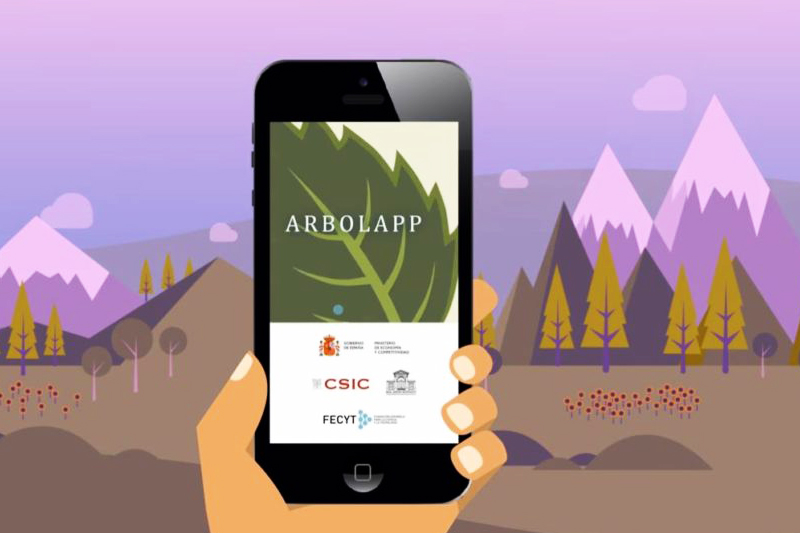 Arbolapp has been developed by the Royal Botanical Garden of Madrid, in association with the CSIC (Spanish National Research Council), and it can be used offline. It is focused on identifying trees, as you may have guessed by its name (“árbol” means “tree” in Spanish). It includes 143 different tree species native to the Iberian Peninsula and the Balearic Islands. If you are looking for trees native to the Canary Islands, you can use a different app developed by the Jardín Botánico Canario Viera y Clavijo, a botanical garden in the isle of Gran Canaria. The app is quite simple and easy to use. It has two types of search: guided or open. On one side, the guided search gives us options depending on the plant’s characteristics. We have to check the ones matching with the plant we are looking at and use complex dichotomous keys, just like a real botanist will do. As you select features, the application directs you to other features, based on the information you provided earlier. On the other side, the open search will offer all the available characteristics regardless of the ones you check.
Arbolapp has been developed by the Royal Botanical Garden of Madrid, in association with the CSIC (Spanish National Research Council), and it can be used offline. It is focused on identifying trees, as you may have guessed by its name (“árbol” means “tree” in Spanish). It includes 143 different tree species native to the Iberian Peninsula and the Balearic Islands. If you are looking for trees native to the Canary Islands, you can use a different app developed by the Jardín Botánico Canario Viera y Clavijo, a botanical garden in the isle of Gran Canaria. The app is quite simple and easy to use. It has two types of search: guided or open. On one side, the guided search gives us options depending on the plant’s characteristics. We have to check the ones matching with the plant we are looking at and use complex dichotomous keys, just like a real botanist will do. As you select features, the application directs you to other features, based on the information you provided earlier. On the other side, the open search will offer all the available characteristics regardless of the ones you check. 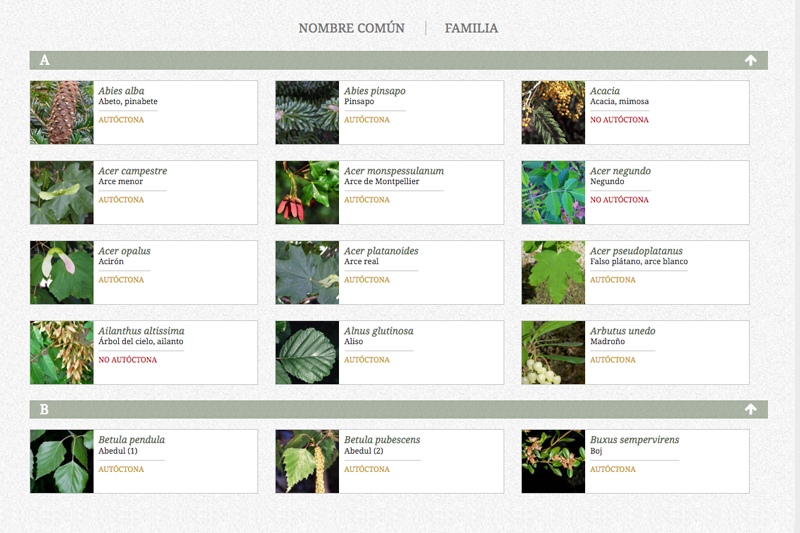
It is a very useful app, but it only includes 143 species, so in order to carry on a broader and more specific identification, we would need a higher number of species. We think they would gradually add more.
Whereas Natusfera is a citizen science app where amateur or nonprofessional citizens can help the scientific community by adding information about plants. Other projects, such as Liquencity, also use this kind of system. Even though it is a less intuitive app, it works perfectly and it can be extremely useful.
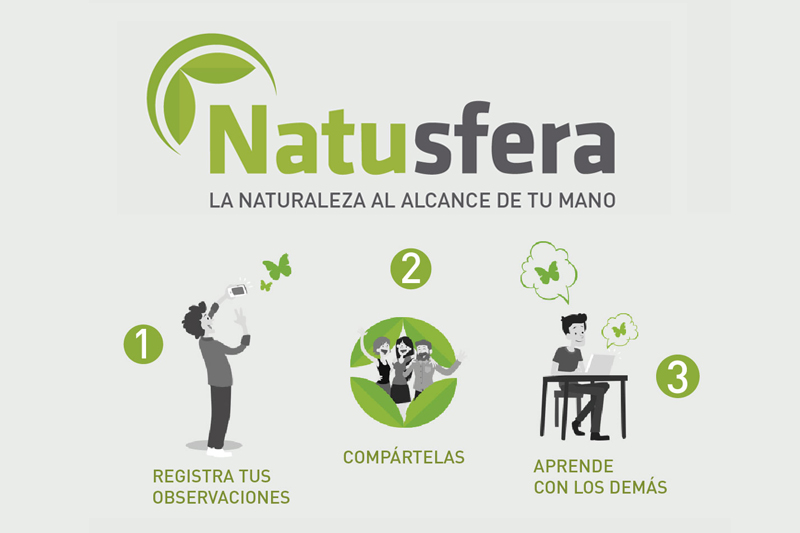 We can share our pictures and comments with other naturalists and exchange information. Your comments will be saved and you will be able to connect with other users to help them identify certain plant or animal species. Plus, you can add the exact location where you found them and aid scientist to create useful data about the distribution of species. In addition to learning, you will be contributing in a direct way to biology, providing useful information for research, just as you would if you were a scientist! Once we have taken a picture, we can select if we want the Natusfera community to help us identify the species. After this, we are ready to upload our comment to the platform. Then it will be classified depending on the votes from the community. There are three categories: casual level, species in need of identification and research level. Another positive aspect of the app is that it sets itself directly in the language you have on your cell phone, although there are some settings that will always be in English. There are other apps that are based on comparison. For example, we take a picture of a plant we want to identify and the app automatically compares it with images of similar plants. This way we can compare and decide which species looks more like the one we are looking at.
We can share our pictures and comments with other naturalists and exchange information. Your comments will be saved and you will be able to connect with other users to help them identify certain plant or animal species. Plus, you can add the exact location where you found them and aid scientist to create useful data about the distribution of species. In addition to learning, you will be contributing in a direct way to biology, providing useful information for research, just as you would if you were a scientist! Once we have taken a picture, we can select if we want the Natusfera community to help us identify the species. After this, we are ready to upload our comment to the platform. Then it will be classified depending on the votes from the community. There are three categories: casual level, species in need of identification and research level. Another positive aspect of the app is that it sets itself directly in the language you have on your cell phone, although there are some settings that will always be in English. There are other apps that are based on comparison. For example, we take a picture of a plant we want to identify and the app automatically compares it with images of similar plants. This way we can compare and decide which species looks more like the one we are looking at. 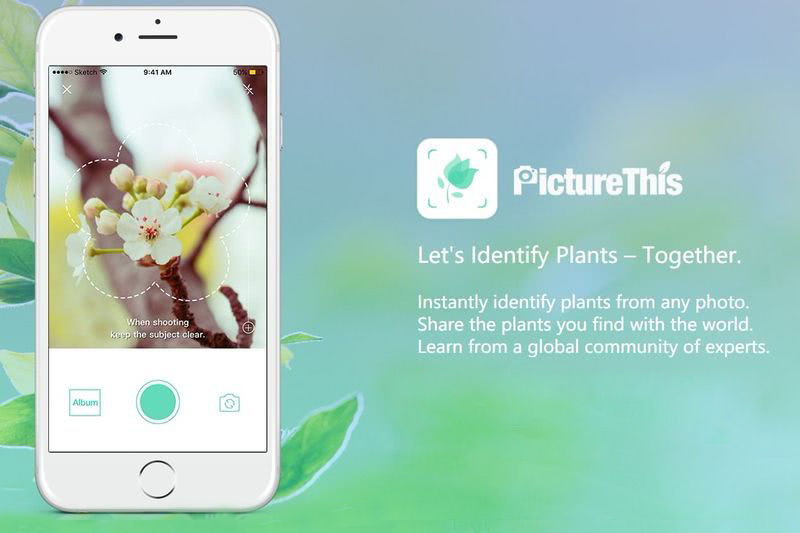
Lastly, we can find other recently popular apps like Picturethis and Plantnet. These are probably one of the easiest ones to use. As soon as you take a picture of the species you want to identify, different possibilities that may be a match appear instantly. Picturethis gives us the possibility of adding more than one picture and saying if it is of a flower, a leaf, a trunk or a fruit. This way, we give more detailed information to the app.
It is important to know that these two apps are not supported by a scientific community, like Natusfera, so the results are not the most reliable. Plantnet is set automatically in the language we have set on our cell phone, whereas Picturethis is only available in English.
Self-taught horticulture
Now we are going to talk about a different kind of app, because not everything is about identifying plants! If you have a vegetable garden and want to learn more about how to take care of your crops and how to grow them properly, these are your kind of apps. The following apps will definitely help you become better growers.
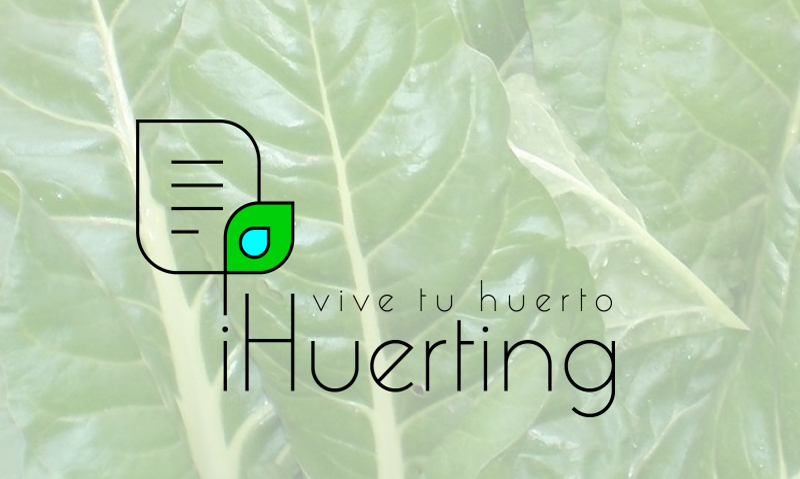
First, we are going to talk about Ihuerting, a very useful app. You choose the plant you are going to grow and add all the practical info you want to know about its growing: how often do you want to water it, what kind of pesticides do you need to use, etc. The app will give you a description of the species and a series of tips included in the plant care plan.
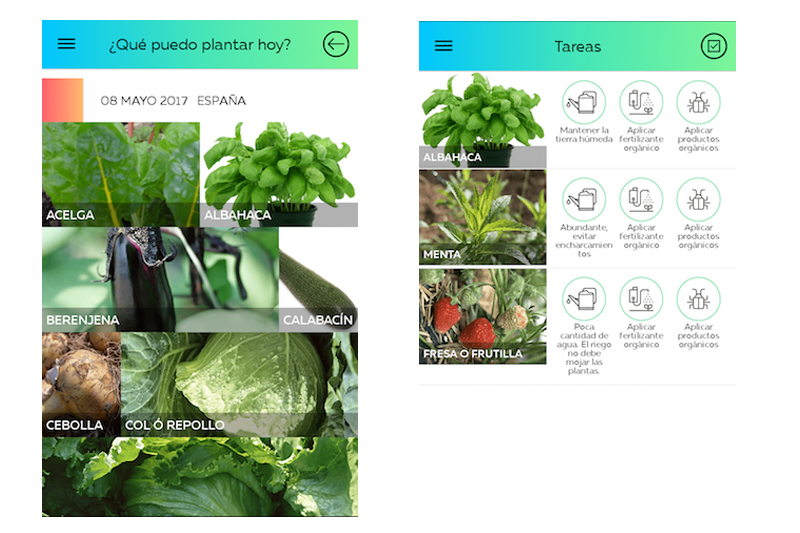 It also has another section about plagues. It tries to diagnose which disease is attacking our crops based on the symptoms detected by the user. Then it will immediately tell us which insect may be parasitizing our plant. Apart from all this information, it gives you access to a community where you can share your recipes and find a bunch more, so in addition to becoming a great botanist, you can also become quite the chef! It is a very comprehensive and educational app because you can learn while you manage your own vegetable garden. The only negative thing is that it includes ads.
It also has another section about plagues. It tries to diagnose which disease is attacking our crops based on the symptoms detected by the user. Then it will immediately tell us which insect may be parasitizing our plant. Apart from all this information, it gives you access to a community where you can share your recipes and find a bunch more, so in addition to becoming a great botanist, you can also become quite the chef! It is a very comprehensive and educational app because you can learn while you manage your own vegetable garden. The only negative thing is that it includes ads. 
Now let’s talk about Plantit, a very similar app developed by our Portuguese neighbours. Although it is only available in Portuguese, it is very easy to understand. Much like in Ihuerting, we start by choosing a crop for our vegetable garden and then it gives us all the key information we need for the plant to succeed: watering needs, how to plant it, etc.
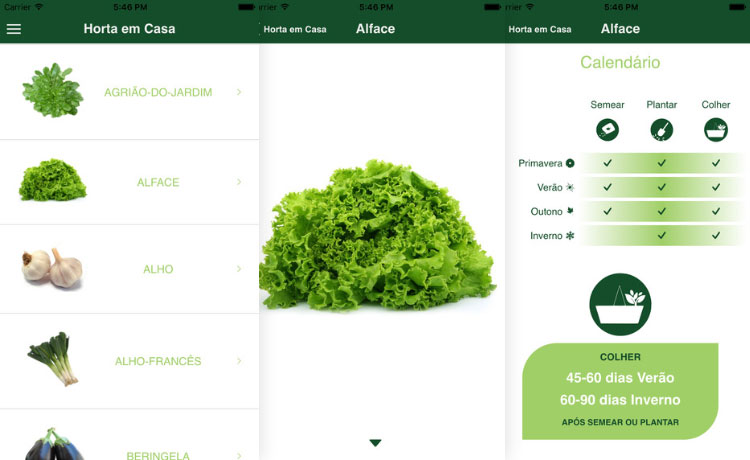
It also includes a very detailed sowing, planting and harvesting calendar where you can also check how many days you have to wait after sowing before you start harvesting. It even gives you the option to register and keep track of your plant so you can keep your plant garden on point.
Reminders to care for your plants
Apps like Gardenia have been designed for the forgetful. Either for beginners or experts in the field, this app offers a personal garden manager that keeps track of your plants. Based on your planning and settings for each species, the app will remind you when to water, prune, etc. In addition to being able to keep track of the characteristics and care of your species, it can provide you information about the weather in your location.
Other similar apps such as Plantcare Reminder, Groww and Grow it also use reminders to help you take care of your garden. Among these three, the first one is quite original, because when you choose the plant you are going to take care of, you can copy its icon on your desktop to follow the plants’ development without having to open the app. If you haven’t watered the plant in a long time, the icon will look withered. This is a very visual approach that will make you pay more attention to your garden.
Playing with botany
Last but not least, we are going to name some game apps we can enjoy from time to time. We will not learn much about plants, but we will have some fun and maybe even make us go back to some healthy habits.
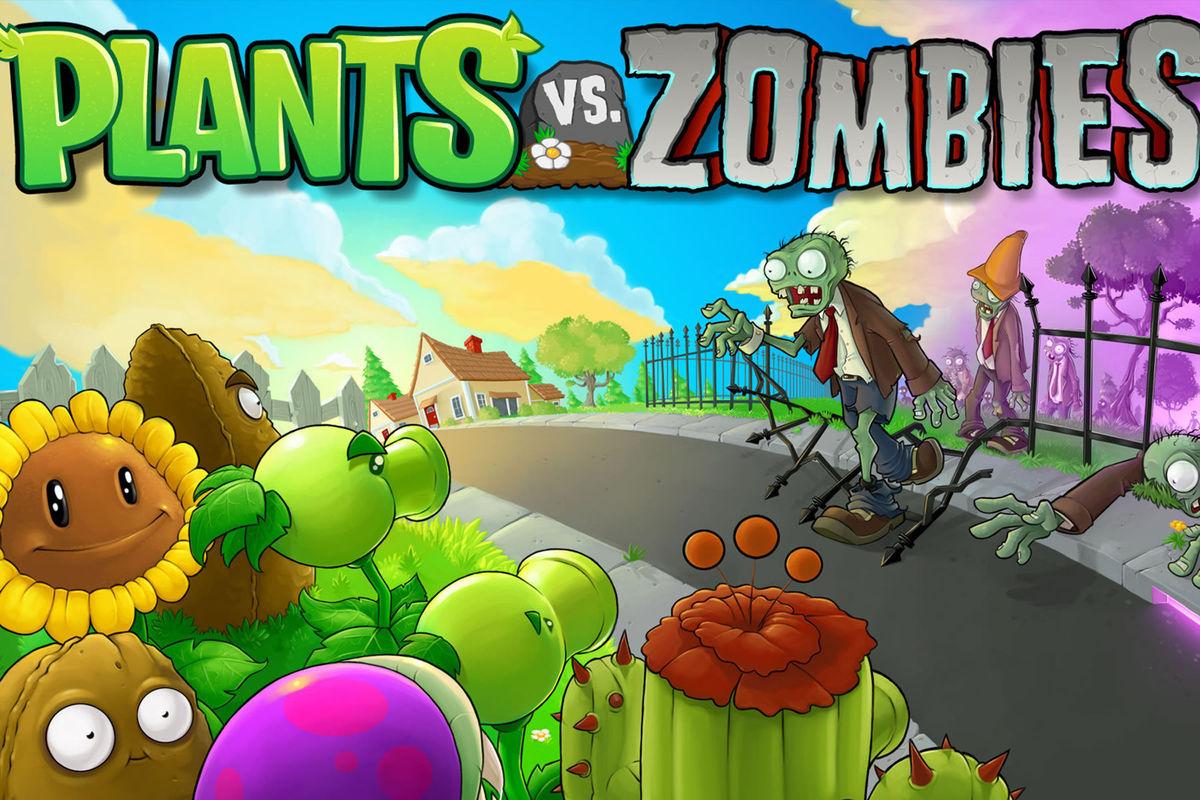
A very popular game is Plants vs Zombies. Who hasn’t ever imagined that their garden is being invaded by a mob of zombies? Ok, maybe it’s not that common, but this is what this funny application is about: dealing with a zombie attack on your land. You will have to protect the land using different types of plants. Each plant has its own characteristics and you can use them to create an attack to defeat the zombies.
Another popular game is Plant Nanny – Water Reminder. In this game you will have to water your plant and, each time you water it, you will also have to drink some water. So this app is perfect for those who need to improve their hydration habits and it will probably help them improve their health. Oh, and if it’s been too long since you’ve watered your plant, an alert will pop up on your phone to remind you that you should drink more water!
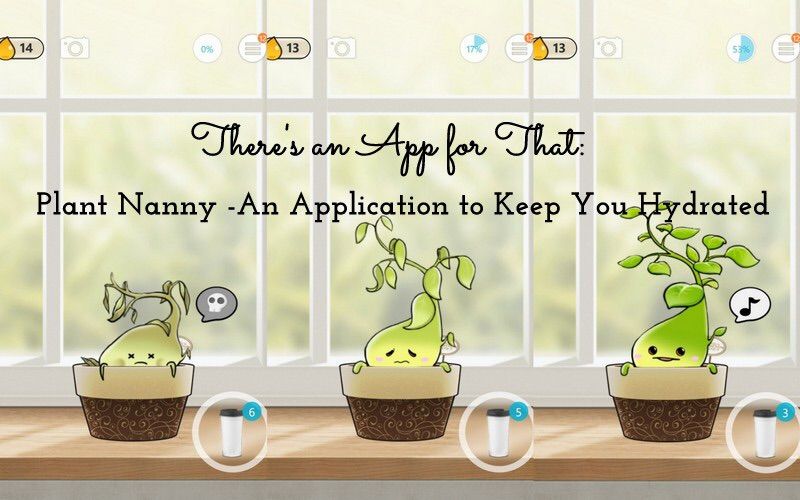
Other pretty fun and peculiar games are Plant Evolution World and Happy Plants, the last one more oriented to children so they can learn about plants in a more didactic and entertaining way.
And so much for our tour of the most useful, curious and fun plant apps. As you may have noticed, there is a wide array of options we can explore. Depending on our personality, we will like one app more than the other. We have to use this curiosity of ours to seize every detail of what is happening before our eyes.





